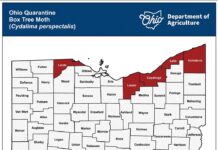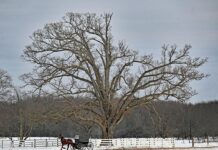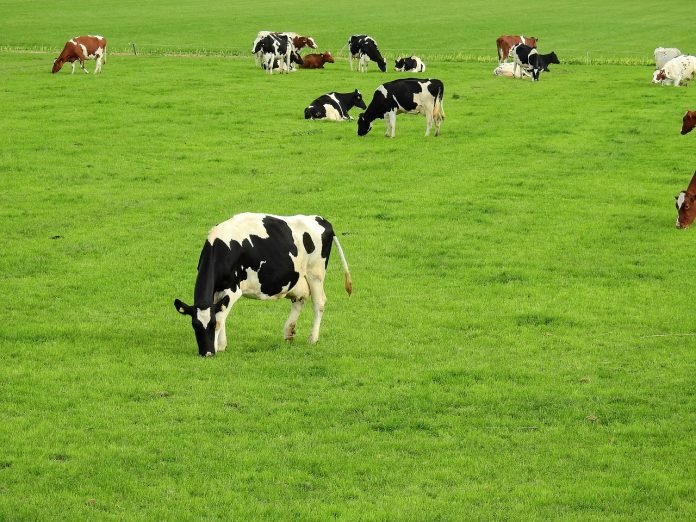WASHINGTON — The U.S. Department of Agriculture has awarded $12 million in cooperative agreements for 49 projects that expand access to conservation technical assistance for livestock producers and increase the use of conservation practices on grazing lands. The funding is provided through the USDA Natural Resources Conservation Service’s Grazing Lands Conservation Initiative.
These projects have identified barriers to accessing grazing assistance for producers and will include outreach and support for reaching underserved producers.
Projects will focus on one or more of the following priorities:
• Addressing local natural resource concerns.
• Using climate-smart agriculture and forestry practices and principles.
• Encouraging existing and new partnerships through emphasizing equity in advancing the resource needs of underserved communities.
• Identifying and implementing strategies to quantify, monitor, report on and verify conservation benefits associated with grazing management systems.
The following are among the 49 projects selected:
Grassworks, Inc. – This project will build farmer resilience with climate-smart regenerative grazing by providing technical assistance and creating a curriculum to be used for multiple educational programs for more than 3,000 Wisconsin livestock farmers, including members of 11 Tribal Nations.
Hawaii Rangeland Stewardship Foundation – This project will build capacity within the Hawai`i Grazing Lands Coalition to provide technical assistance for ranchers engaged in grazing activities, including underserved producers through educational workshops, in-person support, and grazing technical assistance across the state.
National Center for Appropriate Technology Inc. – This project will empower and equip women farmers in the Gulf State Region who are beginning grass-based livestock enterprises and help them expand their knowledge and practice skills in soil health, regenerative grazing, animal handling, health, equipment and tools, and direct marketing.
Sul Ross State University – This project will increase technical assistance and education to private landowners and operators in the Trans-Pecos region in Texas, with emphasis on grazing lands, and will encourage more minority and underserved producers to engage in our conservation programs.
World Wildlife Fund, Inc. – This project will support thriving grasslands and ranching livelihoods in the Northern Great Plains through the Ranch Systems and Viability Planning Network by expanding existing and establishing new peer networks; increasing technical assistance for ranchers on grazing activities, particularly beginning farmers and ranchers, women ranchers, and socially disadvantaged ranchers; and growing minority producer participation in grazing networks.
Vermont Grass Farmers Association, Inc. – This project will strengthen a network for grazing-focused farmer organizations to amplify each other’s works and leverage statewide networks of farmers to create a peer-to-peer network of practitioners and aspiring graziers across New England. Activities will include a regional conference, farm workshops and tours, as well as podcasts and videos.
The full list of cooperative agreements is available on the NRCS website.
GLCI was developed as a coordinated effort to identify priority issues, find solutions, and effect change on private grazing land, enhancing existing conservation programs. GLCI also provides support to the National Grazing Lands Coalition to help state grazing coalitions boost participation from historically underserved producers; host a Triennial National Grazing Lands Conference; and to act as navigators for grazers seeking additional resources.
Eligibility for this opportunity was limited to the following entity types based in any of the 50 States, the District of Columbia, the Caribbean Area (Puerto Rico and the U.S. Virgin Islands), and the Pacific Islands Area (Guam, American Samoa, and the Commonwealth of the Northern Mariana Islands):
• Nonprofit organizations having a 501(c)(3) status with the Internal Revenue Service (IRS) (other than institutions of higher education)
• Farmer or rancher organizations
• State and local conservation governmental agencies
• Agricultural Extension Services
• Native American tribal governments (Federally recognized)
• Native American tribal organizations (other than Federally recognized tribal governments)
Through GLCI, NRCS partners increase the availability of technical assistance for farmers and ranchers engaged in grazing activities and act as navigators for grazers seeking additional resources.
The USDA is reviving and revitalizing GLCI to leverage partner capacity, expertise, and technical assistance to expand the footprint of well-managed grazing systems across the country. Voluntary conservation efforts provide critical support for farmers and ranchers working on grasslands to address climate change and promote good stewardship, wildlife habitat and healthy soil. These new agreements will expand access to this conservation assistance, including the additional investments made available through the Inflation Reduction Act.










